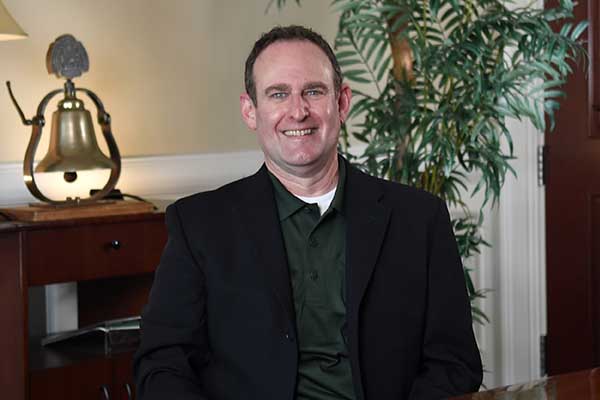
Robert Keynton, dean of the William States Lee College of Engineering, is among UNC Charlotte’s newest academic leaders. He arrived in fall 2020 from the University of Louisville, where was interim executive vice president for Research and Innovation and the Lutz Endowed Chair of Biomechanical Devices in the Department of Engineering at the Speed School of Engineering.
With impressive credentials and a fresh perspective to coincide with the energy generated by the arrival of a new chancellor, Keynton is one of several new dynamic leaders who is eager to apply his expertise to the opportunities facing the Lee College and lessons learned from the current global pandemic to the future of higher education.
What is it about UNC Charlotte that interested you in pursuing a position of leadership?
About 20 years ago, a former student informed me he was moving to Charlotte and planned to continue his degree in mechanical engineering at UNC Charlotte. Since then, I’ve followed the University’s progress and have been amazed — from both academic and research perspectives — by the outstanding growth of The William States Lee College of Engineering. With this opportunity, I was eager to learn more. The deeper I delved into the capabilities of the facilities, and quality of the faculty and staff —along with the positive collegial and collaborative environment--it became clear that UNC Charlotte is the place for me.
Considering the University’s research potential, in what areas do you see research growing? How important are community partners to this endeavor?
Cross-disciplinary collaborations on campus, together with strategic external partners, are critical for elevating the research profile of the University. My colleagues and I are currently looking into several new areas that will position the college and University as field leaders. At the same time, we see enormous opportunities for continued expansion in a number of areas that both the college and the University have established excellent research programs and garnered national attention.
What are the near-term priorities for your college?
I plan to identify synergies between engineering programs and those across campus to develop multidisciplinary programs that impact the Charlotte region and our country. Another goal is to reevaluate how we deliver engineering education, with an eye toward developing new paradigms for top-quality learning environments for our students to enhance their ability to assimilate immediately into the workforce. I’m especially interested in fostering innovation within the college to encourage faculty, staff and students to translate their discoveries into technologies and products that will benefit society and contribute to the economic development of the region. Finally, we'll promote our strengths across different media platforms to raise awareness for the college and UNC Charlotte at the national and international levels.
The circumstances of 2020 have changed the landscape of higher education. What is the value proposition for students?
The shift to remote learning modalities has certainly taught all of us to be resilient and to persevere through life’s challenges to achieve our goals. The students have been exceptional at dealing with these challenges and realize the value of having the ability to continue progressing in their curriculum to ensure they achieve their degrees in a timely manner. At the same time, social injustice issues have come to the forefront and institutions are having open and candid discussions on ways to address and combat these injustices on college campuses. Universities are developing training programs and courses to address unconscious bias, anti-biasing strategies, power and privilege, culture and micro- versus macro aggressions. These add value to the educational experience and, hopefully, will yield a more positive, collaborative and empathetic learning environment.
What will higher education look like on the other side of the pandemic; how should the industry prepare?
Higher education will be forever changed for the better since educators have now gained a greater appreciation for employing different teaching modalities, platforms and tools for delivering course content. Since every student learns differently, I believe educators will deliver course material more efficiently and effectively using the broad spectrum of tools, resulting in a greater number of students comprehending the material successfully. As a result, the industry will need to move away from traditional educational paradigms and implement these, as well as new technologies and resources to improve the educational experience of our students.